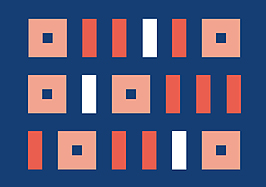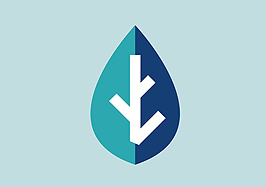
Horizon Scanning
Horizon scanning is an umbrella term that we use to refer to the identification/detection and quantification of emerging innovations at a given timepoint, or on an ongoing basis. Here at the Innovation Observatory, we are employing and developing a range of methods to deliver early insights and intelligence in the health and social care space.
Horizon scanning is an umbrella term that we use to refer to the identification/detection and quantification of emerging innovations at a given timepoint, or on an ongoing basis.
We take a systematic, transparent approach to our horizon scanning and are continuously developing and advancing our methods. Each of our published outputs includes details of the sources searched and the terms used. We scan for many different types of innovation (e.g., medicines, devices, diagnostics), across a broad range of clinical (e.g., stroke, mental health, liver disease), at differing points on the innovation pathway (e.g., 1 year from UK market access, 6 years from estimated market readiness) so the sources and methods used are variable.
We routinely use a combination of manual searching, semi-automated and automated data retrieval methods to support identification and retrieval. We use a wide range of sources including clinical trial registries, company website, newsfeeds, Twitter, conference proceedings, published literature, etc.
For many areas of innovation there can be significant noise and uncertainty, so we work closely with our collaborators to ensure that scoping supports the delivery of a useful output that minimises unwanted noise and translates and quantifies the signal. When translating these signal data we use a range of methods, including the application of prioritisation criteria to help highlight those innovations that may offer most promise/value.
Horizon Scanning Final Report: Identification of Surgical Site Infection Technologies

In this report, the Innovation Observatory has provided a horizon scan of MedTech innovations with the potential to reduce demand for antimicrobials through SSI detection and monitoring. This landscape aims to allow the NHSE & I’s AMR Programme Board to evaluate the potential impact of these SSI innovations and to identify promising technologies for use […]
DownloadHorizon Scanning Final Report: Identification of Acute deterioration / Sepsis Technologies

Studies show that a significant number of sepsis patients (20-30%) receive inappropriate antibiotics, and that blood culture testing – the ‘gold standard’ for sepsis diagnosis – varies significantly across healthcare practices. Such variation causes delay in critical test results, and there is additional evidence to suggest that blood culture testing may not influence a change […]
DownloadFuture Developments and New Technologies in the field of Faecal Incontinence: Scanning the Horizon Using Late-Stage Clinical Trial Registrations

In this paper, horizon scanning techniques were used to systematically identify health technologies related to faecal incontinence (FI) in active development using the NIHR Innovation Observatory’s ScanMedicine database. We found that most late-stage trials focused on bowel management strategies, followed by strategies related to bladder and bowel dysfunction. There was limited evidence found for new […]
Visit WebsiteHorizon Scanning Final Report: Identification of Respiratory Tract Infection Technologies

Following a request from the AMR Programme Board and the AMR Diagnostic Programme Board, the Innovation Observatory sought to undertake horizon scanning activities for Respiratory Tract Infection (RTI) technologies and to identify the pipeline of development, key players, opportunities and challenges in the field. The findings of that horizon scan were summarised into the accompanying […]
DownloadCombination therapies for COVID-19: An overview of the clinical trials landscape

In this paper, we provide an overview of the current clinical trial landscape for combination therapeutics targeting COVID-19 through weekly scanning of national and international clinical trial registries. Our analysis delves specifically into dual combination therapies in what can be defined as “pivotal clinical trials” (active, randomised, controlled and at least phase II), with a focus on new and repurposed therapeutic candidates that have shown positive signals and/or been granted authorisation for emergency use based on positive efficacy and safety data.
Visit WebsiteIdentification of COVID-19 Diagnostics Using Horizon Scanning Approaches to Inform Decision Making

In response to the COVID-19 pandemic the Innovation Observatory has collated a comprehensive global dataset of SARS-CoV-2 diagnostic tests, supporting stakeholder in assessing priorities and mitigation options in response to testing challenges. Using manual and automated horizon scanning approaches, our diagnostic landscape has provided key insights into the evolution of technological innovations, their regulation and […]
DownloadRapid Technology Scan: Radioligand Technologies

The Innovation Observatory performed a scan of radioligand technologies (imaging and therapeutic) in May 2021, using robust horizon scanning methods to identify promising innovations and to anticipate technological trends. We developed a detailed dataset of technologies by formulating search strategies for radioligand, based on a comprehensive list of terms and input from expert panels. Primary […]
DownloadHorizon scanning of innovative medicines, devices, diagnostics and digital technologies for stakeholders in England

This workshop was delivered to HTAi members with varying degrees of knowledge and experience in horizon-scanning (both beginners and experienced). It shares the experiences, insights and case studies from IO’s horizon-scanning activities to help participants gain an understanding of horizon scanning in the context of HTA, provide an overview of key elements for consideration in a […]
DownloadHorizon Scan for Advanced Therapy Medicinal Products

Advanced Therapy Medicinal Products (ATMPs) are novel therapies based on cells, genes or tissues with the potential to address the underlying cause of the diseases. ATMPs come with potentially significant implementation challenges, high costs and regulatory & assessment uncertainties.
Download






